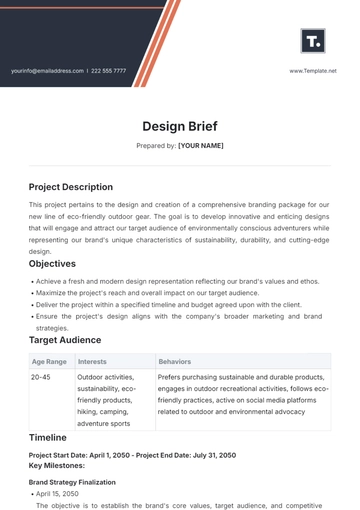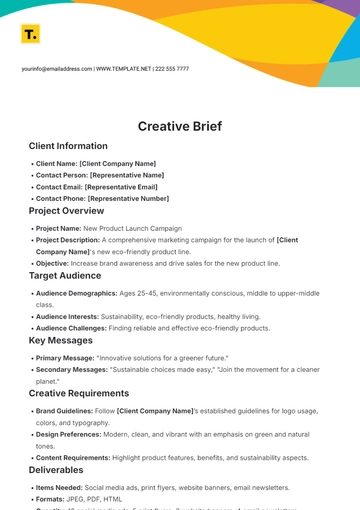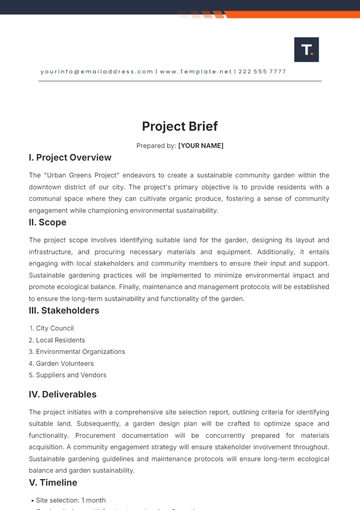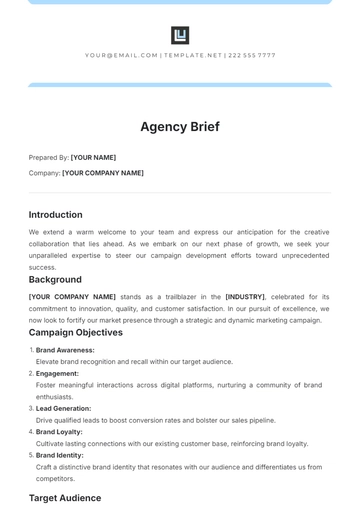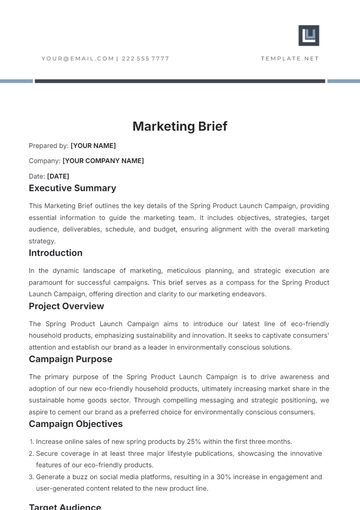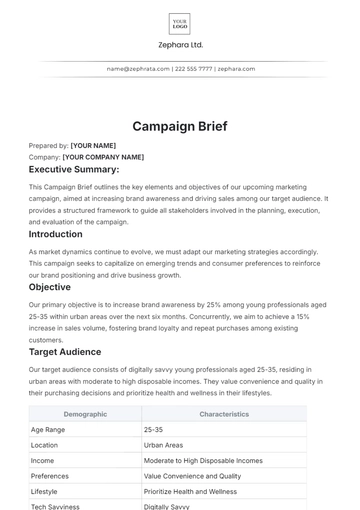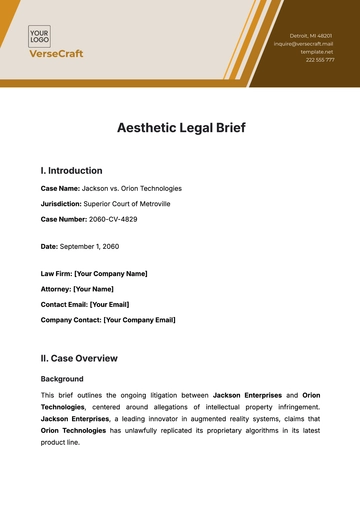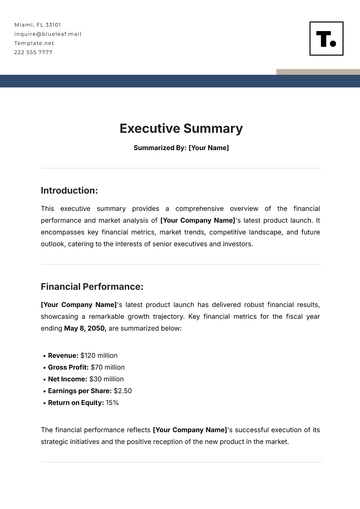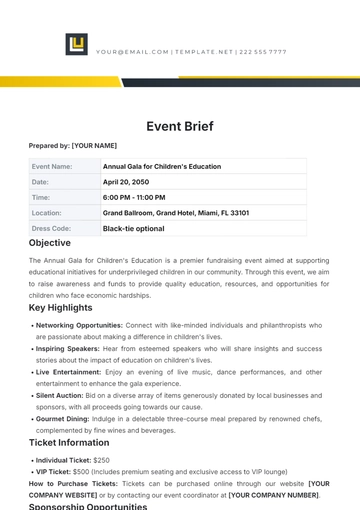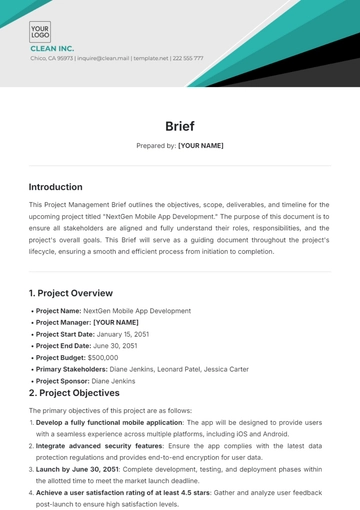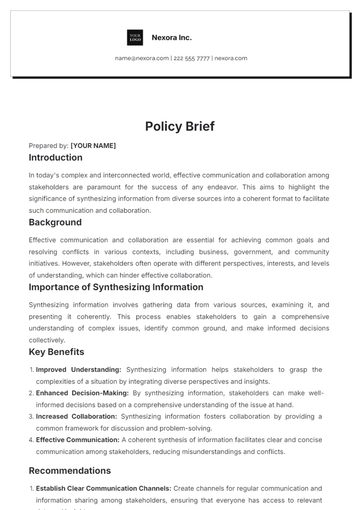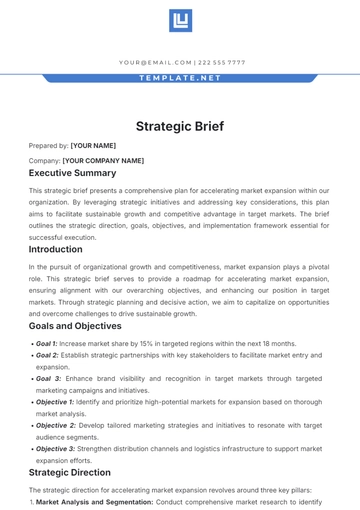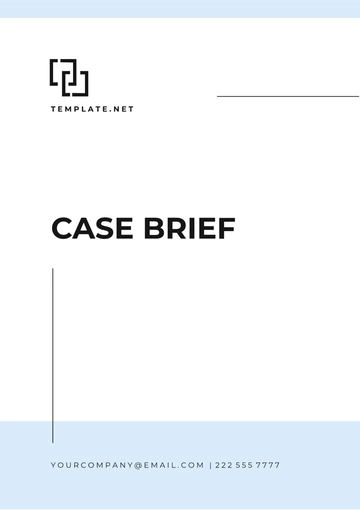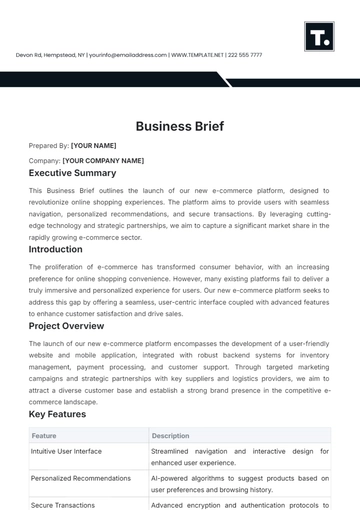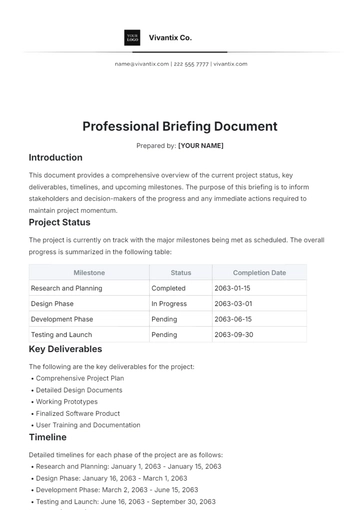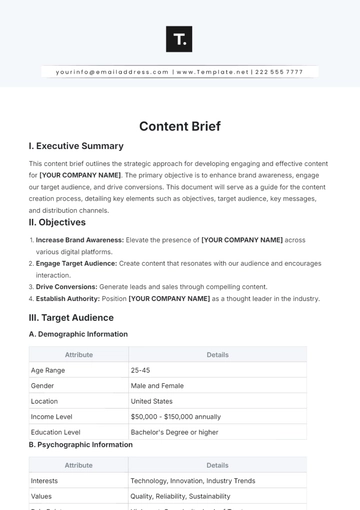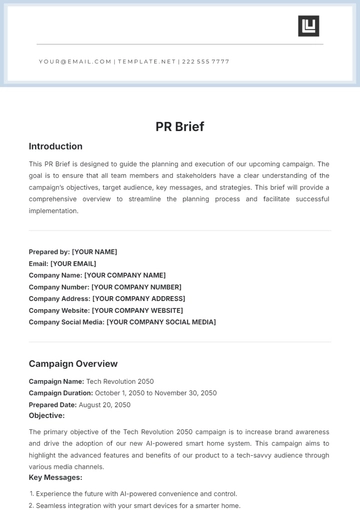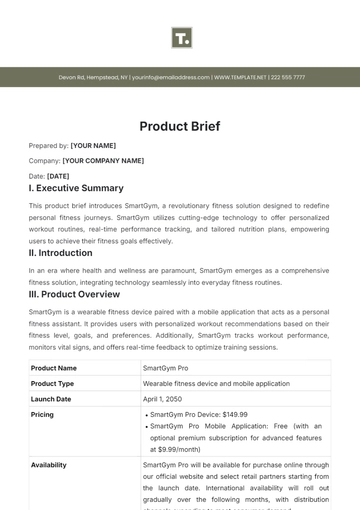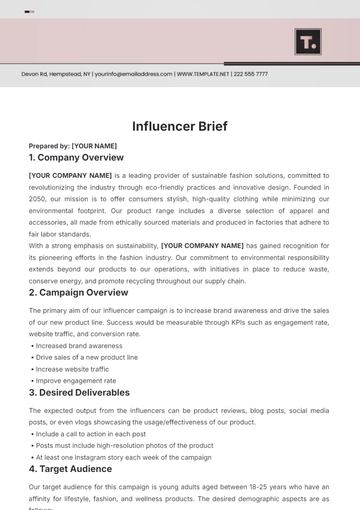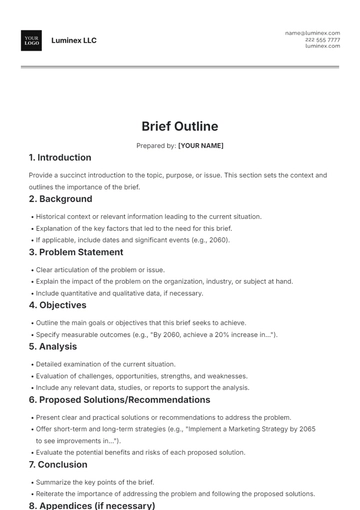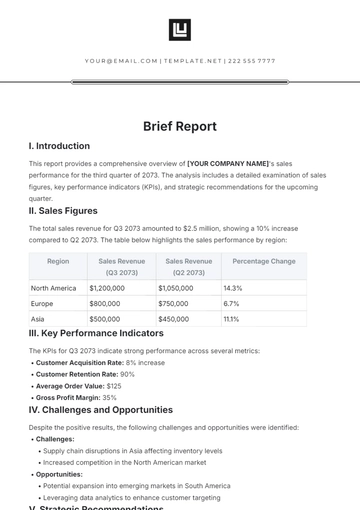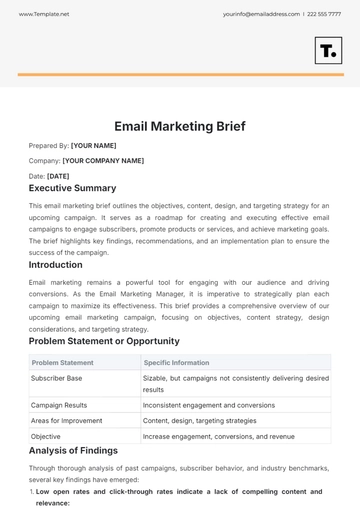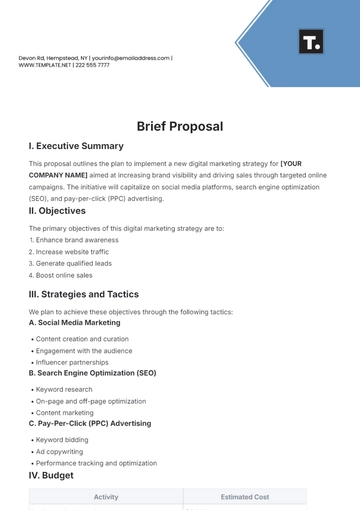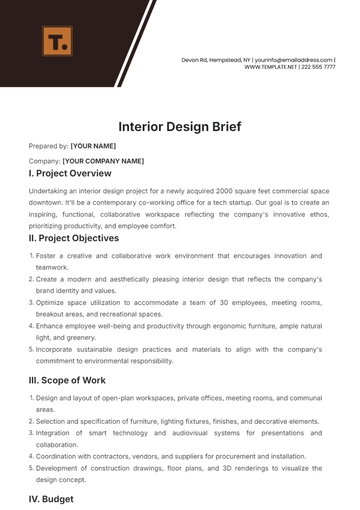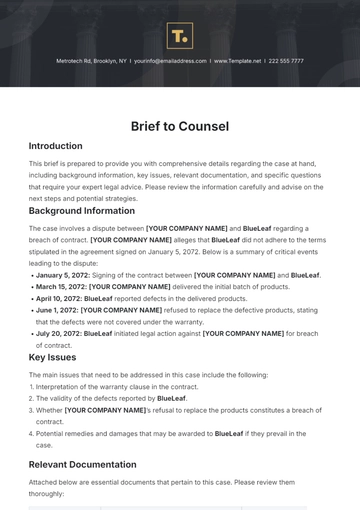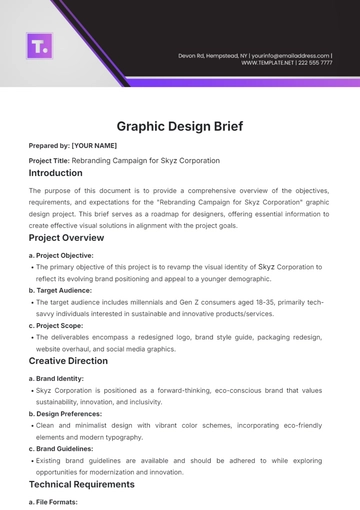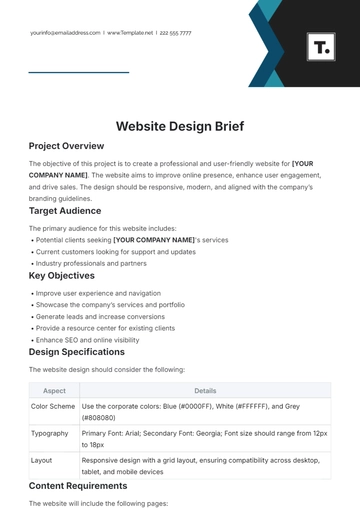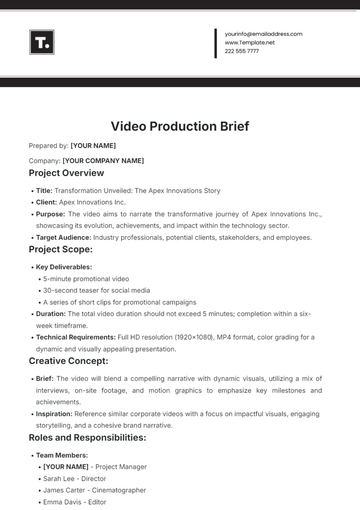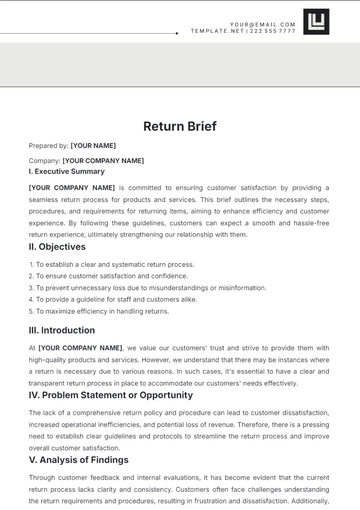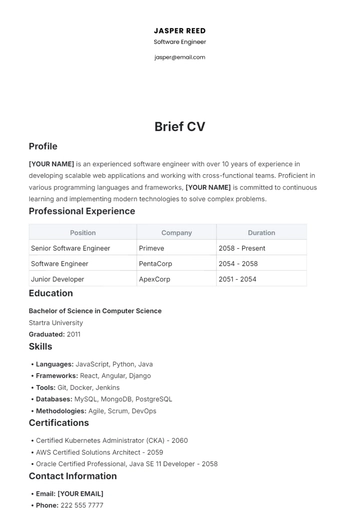Free Company Law Case Brief
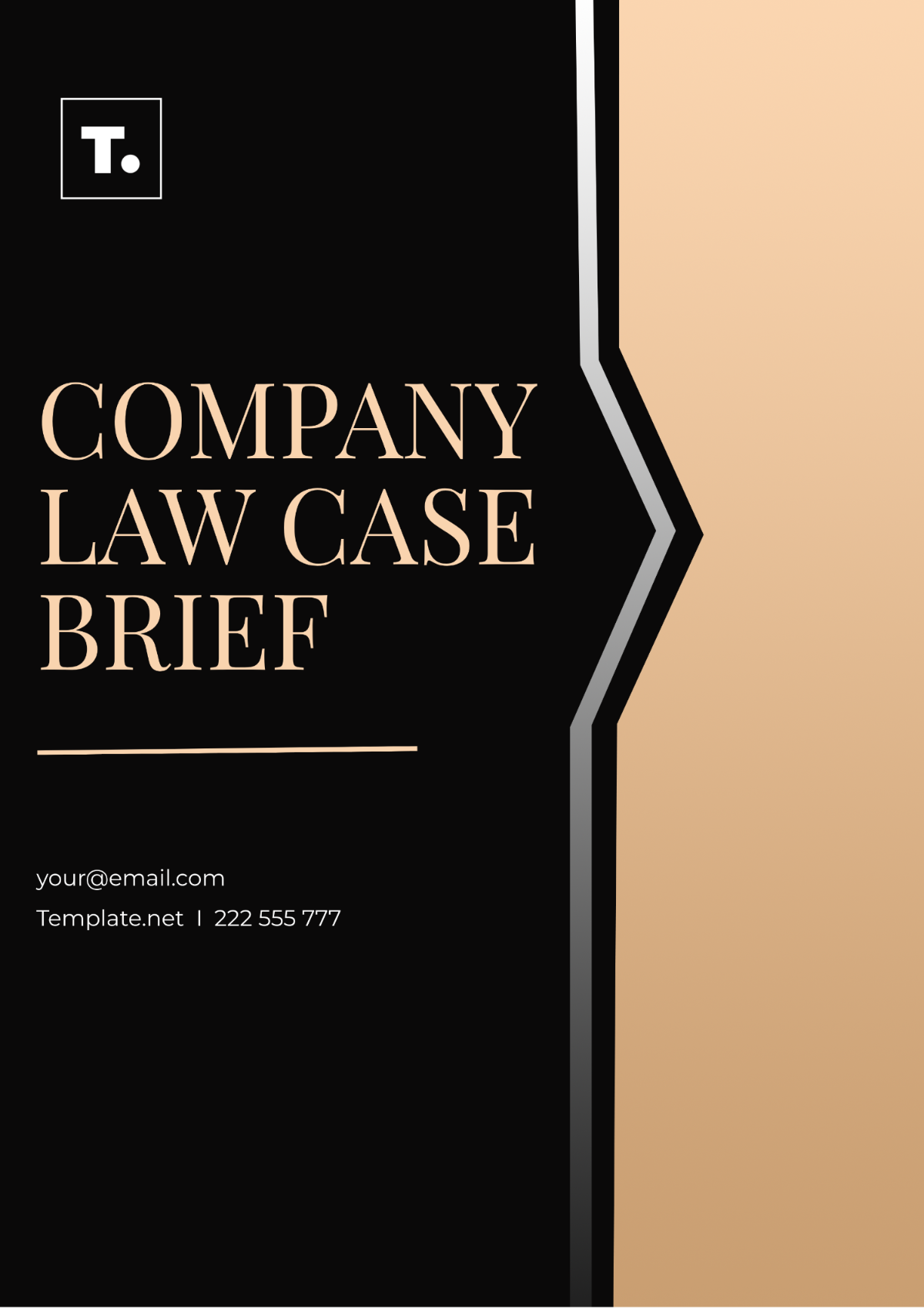
I. Case Title and Citation
Case Title: Howard v. Ross
Court: Supreme Court of the United States
Citation: 123 U.S. 456 (2055)
II. Parties
Plaintiff: Chris Howard
Defendant: Summer Ross
III. Case Background
The case revolves around a dispute between Chris Howard and Summer Ross regarding the ownership of intellectual property rights. The central issue is whether a non-compete clause in their employment contract is enforceable under state law. The case involves the interpretation of the state's employment laws and contract law principles.
IV. Facts
Chris Howard and Summer Ross were former employees of a technology company.
Their employment contracts contained a non-compete clause prohibiting them from working for a competitor within five years of leaving the company.
Chris Howard started working for a competitor within the restricted period, leading Summer Ross to file a lawsuit against him for breach of contract.
V. Legal Issues
Primary Issue: Whether the non-compete clause in the employment contract is enforceable under state law.
Secondary Issues:
Whether Chris Howard's actions constitute a breach of contract.
Whether the non-compete clause is reasonable in scope and duration.
VI. Arguments
Plaintiff's Argument: Summer Ross argues that Chris Howard's actions violate the non-compete clause, which is a valid and enforceable provision of their contract.
Defendant's Argument: Chris Howard contends that the non-compete clause is overly restrictive and violates his right to seek employment.
VII. Legal Principles
Relevant Statutes: State Employment Law, Contract Law
Precedent Cases: Doe v. Roe, 122 U.S. 789 (2050)
VIII. Decision
The Supreme Court ruled in favor of Summer Ross, holding that the non-compete clause was enforceable under state law. The court found that the clause was reasonable in scope and duration, and Chris Howard's actions constituted a breach of contract.
IX. Impact
This case sets a precedent for the enforceability of non-compete clauses in employment contracts under state law. It clarifies the legal standards for such clauses and provides guidance for future cases involving similar issues.
- 100% Customizable, free editor
- Access 1 Million+ Templates, photo’s & graphics
- Download or share as a template
- Click and replace photos, graphics, text, backgrounds
- Resize, crop, AI write & more
- Access advanced editor
Simplify company law case analysis using this Company Law Case Brief Template that’s offered by Template.net. This editable template in our Ai Editor Tool assists in summarizing complex legal issues concisely. Customizable for different cases, it's a must-have for law students and professionals specializing in corporate law. Get it now!
